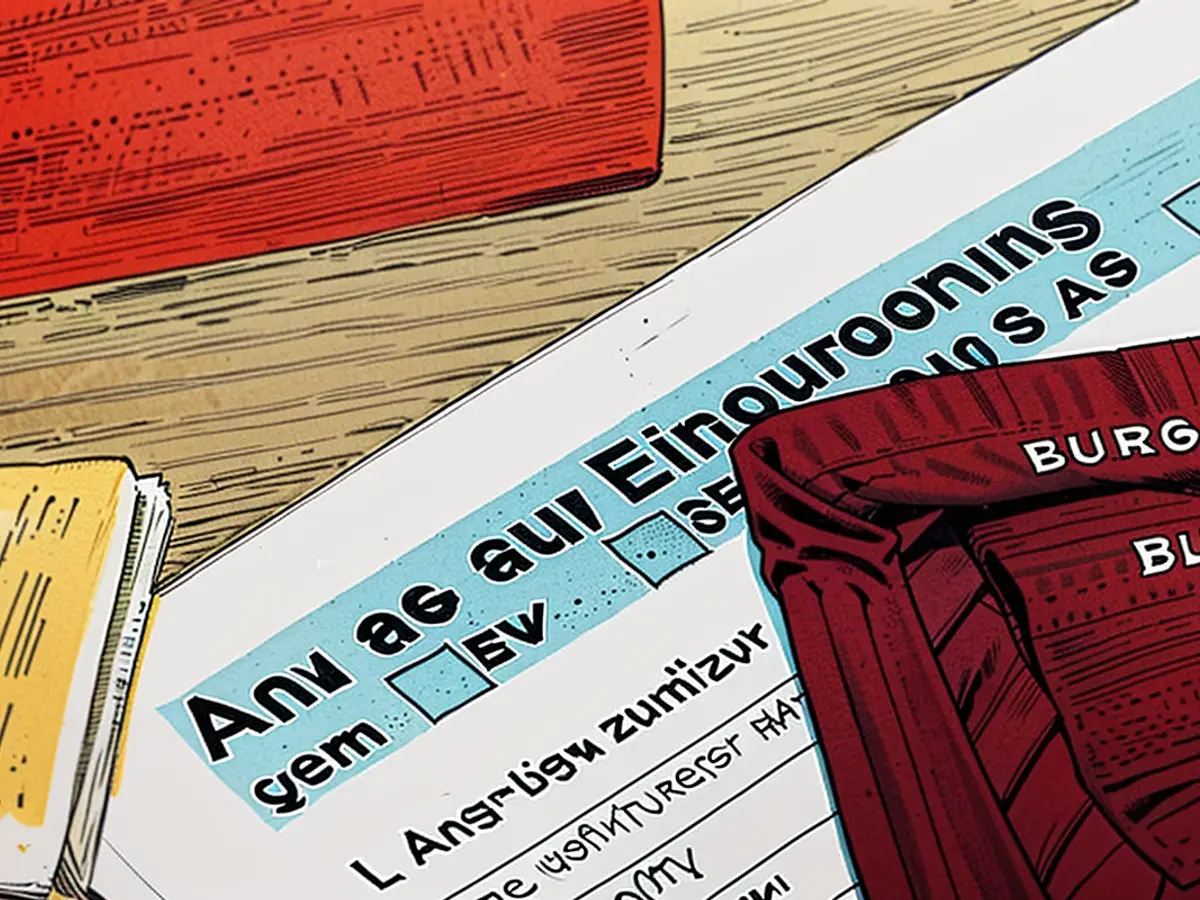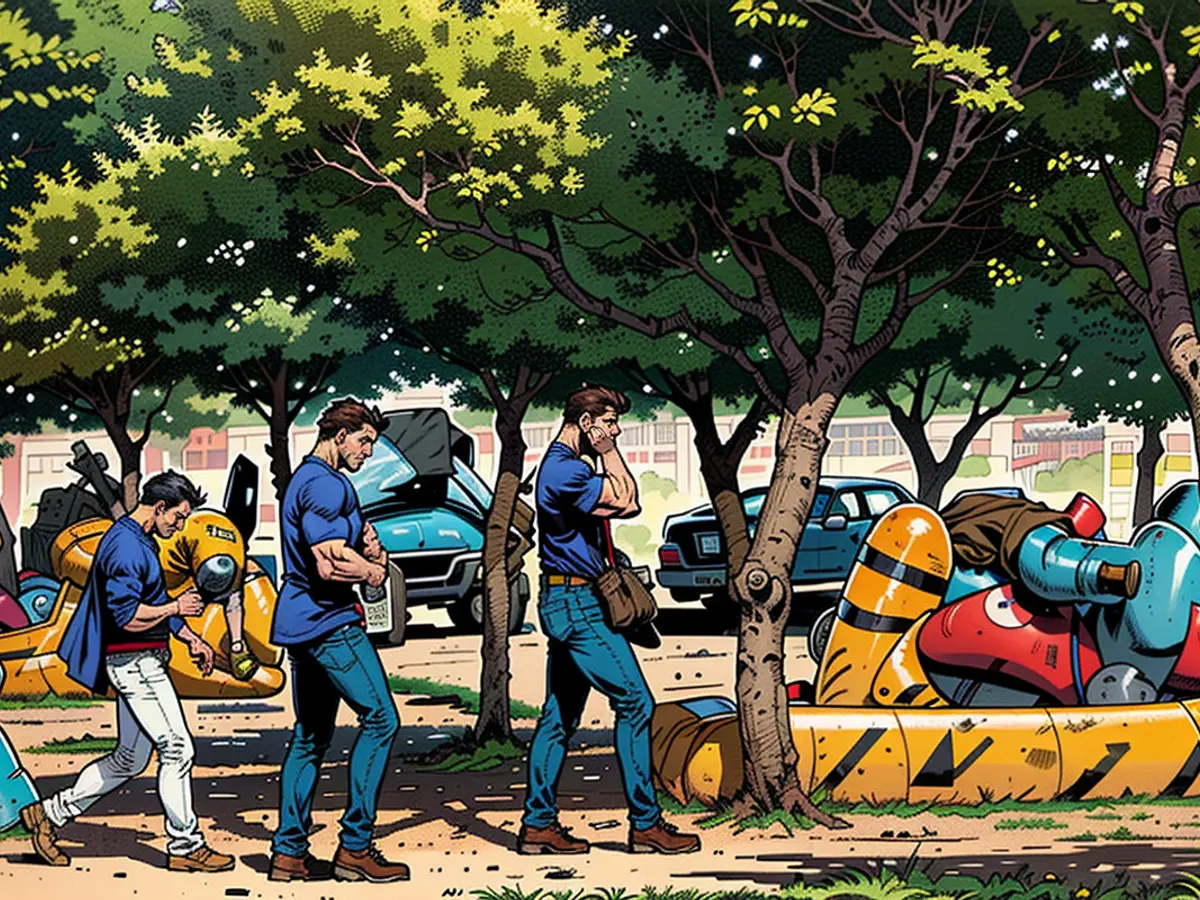Patience Still Needed for Those Who Want to Become Citizens
Since late June, the new citizenship law has been in effect. It provides that a claim to naturalization can now be made after five years instead of the previous eight. However, the path to naturalization will remain long for many. Many offices are overloaded.
The new citizenship law has sparked a high demand for German passports. However, according to estimates by the German Cities Association, the path to naturalization will remain long for many foreigners for the time being.
In public, the reform, which came into force on June 27, is often perceived as making naturalizations not only easier but also faster, said the main executive of the municipal association, Helmut Dedy. "That is not the case, at least not in the next few months." The fact that a large number of new applications are now being received by already heavily burdened offices is slowing down the procedures rather than speeding them up. "Those wishing to naturalize must first bring a lot of patience," explained Dedy.
The new citizenship law, passed by the SPD, Greens, and FDP, provides that a claim to naturalization can now be made after five years instead of the previous eight - provided the applicant meets all the conditions. For example, someone must be able to basically support themselves.
Foreigners can become German citizens after three years in the case of special integration achievements. Requirements for faster naturalization include good performance in school or work, excellent language skills, or volunteer engagement. Dual citizenship - the so-called double passport - is generally allowed. To honor the achievements of DDR contract workers and so-called guest workers, the requirements for naturalization have been reduced for them.
Federal government recommends naturalization celebrations
Many cities make great efforts to welcome new citizens in naturalization ceremonies, according to the Cities Association. Staffing is also being increased where possible. However, main executive Dedy sees a limit here. He says: "The personnel shortages that have arisen due to new tasks and thus ever more cases in the offices cannot simply be eliminated."
The waiting time for processing at the naturalization office in the city of Erfurt is currently over a year. The office then needs three to six months to process a case, depending on its complexity. While 68 applications were received in June, there were already 114 in July.
In Hamburg, one had expected a large influx as a result of the legal change and had therefore digitized processes in advance and, according to a spokesman, also increased staff. The processing time is currently around one year, said the spokesman. Since June 27, around 3,000 naturalization applications have been submitted in the Hanseatic city - more than twice as many as in the same period last year. The most common countries of origin were Syria, Afghanistan, Iran, Turkey, and Iraq. On average, foreigners interested in naturalization in Hamburg have been living in Germany for twelve and a half years when they submit their application.
Lip service to democracy is not enough
More Complex Than Before, Says City Council: Verification of Applicants' Adherence to Democratic Principles
The German City Council reports that verifying applicants' commitment to the principles of a free and democratic society has become more complicated since the reform. In June, the Federal Ministry of the Interior provided the states with preliminary guidelines on the key changes brought about by the "Act on the Modernization of Nationality Law." These guidelines suggest that applicants should explicitly acknowledge, among other things, the independence of the courts and the incompatibility of anti-Semitic, racist, or otherwise contemptuous behavior with the human dignity guaranteed by the Basic Law. However, the authorities in the states are free to use their own formulations in their information for naturalization applicants.
While the authorities must examine possible criminal records or findings by the Office for the Protection of the Constitution, the federal guidelines also mention oral or written statements made on publicly visible parts of social networks, such as through comments, likes, profile pictures, or shared posts, that could be considered anti-Semitic, racist, or otherwise contemptuous.
The Challenge of Internet Research
The German City Council points out that inquiries can be made with security authorities, and in particularly conspicuous cases, further sources can be consulted. However, the main business manager, Dedy, notes that "for authorities, searching social media channels is difficult from a data protection perspective, as clear identification is hardly possible there."
The North Rhine-Westphalian Ministry of the Interior states that an internet search is not a mandatory prerequisite for a decision on naturalization. However, if there are indications that an applicant's actions contradict the principles of a free and democratic society, the authority may, at its discretion, gather further information, "possibly also by viewing social media profiles."
The new nationality law is one of many reforms in immigration and residence law passed by the traffic light coalition. Some of these reforms would be reversed by Union interior politicians if they were to take power after the next federal election. Meanwhile, local administrative officials are working to understand and correctly apply the many new laws, from the chance of residence law to the skilled workers immigration law, to the new rules for naturalization.
The new citizenship law, known as the 'Law on integration', has prompted an increase in German passport applications, leading to long waiting times at naturalization offices. According to Helmut Dedy, the main executive of the municipal association, the influx of applications is slowing down the naturalization process rather than speeding it up.
In light of the 'Law on integration', verifying applicants' commitment to democratic principles has become more complex. The federal guidelines suggest examining an applicant's statements on publicly visible parts of social networks, which can be challenging from a data protection perspective.








